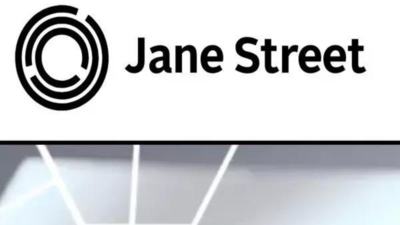ARTICLE AD BOX

Tax authorities have called upon EY, the auditor of Jane Street's Indian subsidiary, as they build a case against the US investor. The department has also obtained sworn statements from two staff members and a director of Jane's local entity, as reported by Economic Times.Following a six-day investigation that yielded limited information from offshore servers, the Income Tax (I-T) department is attempting to gather additional details from the auditor and local employees.The tax authorities are seeking to determine the location of traders and decision-makers within Jane's Indian operations, based on their recent communications following the survey. "From the line of questioning so far, it appears that the department's focus is to know where Jane Street's Indian subsidiary received its instructions from," a knowledgeable source informed ET.
"In this context, they could question EY on the details of its letter of engagement, who all it deals with, and from where it received data.
This could indicate where the people taking decisions on behalf of Jane India are based, even though this may not be enough," the ET source added.Should tax officials prove that Jane's Indian proprietary trading unit was merely an extension of the foreign entity, following parent group instructions, they could reject the local company's losses, preventing their carry-forward and requiring tax payment on future earnings.
"However, for the tax office this would be a comparatively smaller scoring point. In claiming tax on Jane's profits, it must weave this point to raise the larger issue-i.e, putting a question mark on the treaty benefits enjoyed by Jane Singapore and Hong Kong," another source stated.To construct a stronger case, authorities must show that Jane's offices in India, Singapore, and Hong Kong collaborated to avoid tax, constituting an 'impermissible avoidance arrangement' primarily aimed at tax benefits.
Treaty advantages are reserved for legitimate transactions.The regulator alleges that Jane's Indian entities handled cash and stock futures positions while Singapore and Hong Kong-based Sebi-registered FPIs managed equity options. Indian trades allegedly influenced prices, allowing FPIs significant profits, primarily benefiting the Singapore FPI, which avoided derivative profit taxation under the India-Singapore treaty."Establishing that Jane's India operations were an extension of its overseas business may be comparatively easier than denying treaty benefits and imposing tax on Jane Singapore. However, proving Jane India was a sham would certainly help Sebi," noted a senior legal professional.The investigation into Jane Street's potential tax violations appears partly influenced by Sebi, which includes IRS officer Kamlesh Varshney as a whole-time member.Sources indicate that Sullivan & Cromwell, the New York law firm, advises Jane Street. "When it comes to information and data sharing with other governments, foreign investors hire top legal help to choose what to share. If it decides not to part with some data, maybe on grounds of the privacy law of that country, it must give a proper justification," explained a legal specialist. The tax department might later approach Singapore and Hong Kong authorities for information about Jane's operations under sharing agreements.



.png)
.png)
.png)
















 1 hour ago
2
1 hour ago
2









 English (US) ·
English (US) ·